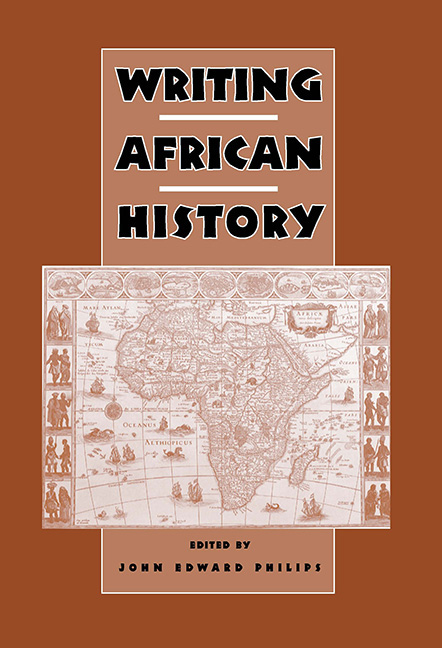Book contents
- Frontmatter
- Dedication
- Contents
- Acknowledgments
- Introduction
- Part I Background
- Part II Sources of Data
- 2 Archaeology and the Reconstruction of the African Past
- 3 Writing African History from Linguistic Evidence 86
- 4 Physical Anthropology and African History
- 5 The Importance of Botanical Data to Historical Research on Africa
- 6 Oral Tradition as a Means of Reconstructing the Past
- 7 Oral Sources and the Challenge of African History
- 8 Arabic Sources for African History
- 9 European Documents and African History
- 10 Mission and Colonial Documents
- Part III Perspectives on History
- Part IV Conclusion
- Contributors
- Index
- Miscellaneous Endmatter
10 - Mission and Colonial Documents
from Part II - Sources of Data
Published online by Cambridge University Press: 11 May 2017
- Frontmatter
- Dedication
- Contents
- Acknowledgments
- Introduction
- Part I Background
- Part II Sources of Data
- 2 Archaeology and the Reconstruction of the African Past
- 3 Writing African History from Linguistic Evidence 86
- 4 Physical Anthropology and African History
- 5 The Importance of Botanical Data to Historical Research on Africa
- 6 Oral Tradition as a Means of Reconstructing the Past
- 7 Oral Sources and the Challenge of African History
- 8 Arabic Sources for African History
- 9 European Documents and African History
- 10 Mission and Colonial Documents
- Part III Perspectives on History
- Part IV Conclusion
- Contributors
- Index
- Miscellaneous Endmatter
Summary
Colonial and missionary encounters with Africa were not limited to political domination or to the pursuit of economic and religious objectives. The generation of knowledge was also part of this interaction. European missionaries and colonial officers sought information to make their work easier, to understand the “minds” of their subjects, and to be able to “engineer” appropriate strategies to civilize the so-called primitive Africans. Some were simply curious about Africans. Not only did they want to satisfy this curiosity, they then wanted to relay the information back to family, friends, sponsors, and even members of the general public who enjoyed stories of Europeans’ heroic and humanitarian engagements with the “dark continent.” No matter the motive or method, Africa is always the “abnormal other” in most of the documents: the continent and its people are different from Europeans, and the difference is presented by many writers in less than flattering ways.
This chapter will analyze their documents. While the general points are applicable to most of the documents, wherever generated, many examples are drawn from West Africa, because of both space limitation and the redundancy of listing all the documents in Africa. The chapter covers the full time span of events mentioned in the documents, if only to show that they address issues of space and time. The documents are abundant, range widely in their varieties, cover many important subjects in the long precolonial and colonial history of Africa, and have a number of drawbacks that should be recognized in their evaluation and use.
There is no one way of reading any particular document. Various documents illuminate various facets of the past. Disciplinary strategies of reading are multiple and reflect biases and boundaries between the various disciplines. New theories, the reality of the present, and the reality of memory all shape the ways in which a document is interpreted and reinterpreted. Documents also deal with many “pasts” rather than just one “past,” and their meanings and conclusions can be contested, just as we debate the interpretations of present histories. The documents do not seek to present any coherent view of the past—as modern researchers, our task is to produce coherence from the fragments, by imposing our themes on them.
The documents can now be found in archives around the world, the majority in public archives in Europe and Africa.
- Type
- Chapter
- Information
- Writing African History , pp. 266 - 284Publisher: Boydell & BrewerPrint publication year: 2005

